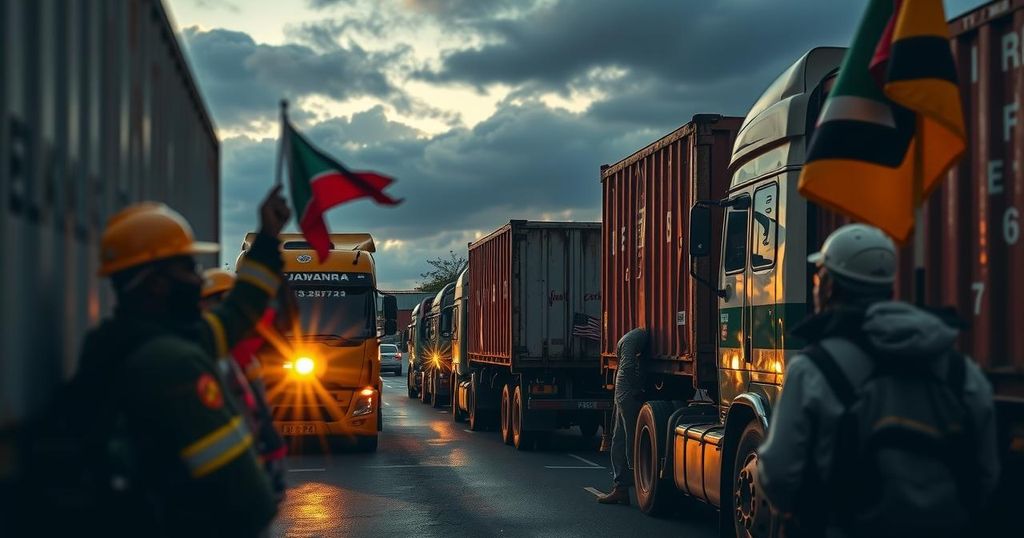East African truck drivers are striking at the Nimule border against a new $70 tax imposed on goods headed to South Sudan. This action highlights trade challenges in the region. Meanwhile, Sudanese civil society seeks to end conflicts and promote peace, while civic freedoms diminish in Sub-Saharan Africa.
Truck drivers operating in East African regions have initiated a strike at the Nimule border point, protesting a new tax of $70 imposed on trucks transporting goods to South Sudan. This collective action underscores the significant financial burden placed on transport operators, prompting widespread disruption in cross-border trade. Concurrently, a coalition comprising various Sudanese civil society groups is actively exploring strategies aimed at ceasing armed conflicts and fostering lasting peace throughout Sudan. Despite these hopeful endeavors, civic freedoms continue to dwindle across Sub-Saharan Africa, raising concerns about the state of human rights and governance in the region.
The recent protests by East African truck drivers stem from a newly enforced tax policy that affects the cost of goods and transportation. The Nimule border area serves as a critical trade route, and disruptions here can severely impact the economy of South Sudan. The involvement of Sudanese civil society groups highlights the ongoing struggles for peace in a nation grappling with years of conflict. Additionally, the decline in civic spaces raises urgent questions about the future of democracy and civil rights in Sub-Saharan Africa, where governments increasingly limit free expression and assembly.
The strike at the Nimule border point reflects broader economic challenges faced by truck operators in East Africa due to increasing taxation on trade. Meanwhile, the efforts to foster peace through civil society engagement in Sudan emphasize the ongoing quest for stability in a nation with a turbulent past. Simultaneously, the reduction of civic space in Sub-Saharan Africa signals a troubling trend that could impede democratic progress in the region, necessitating a collective response to uphold human rights and freedoms.
Original Source: www.voaafrica.com






